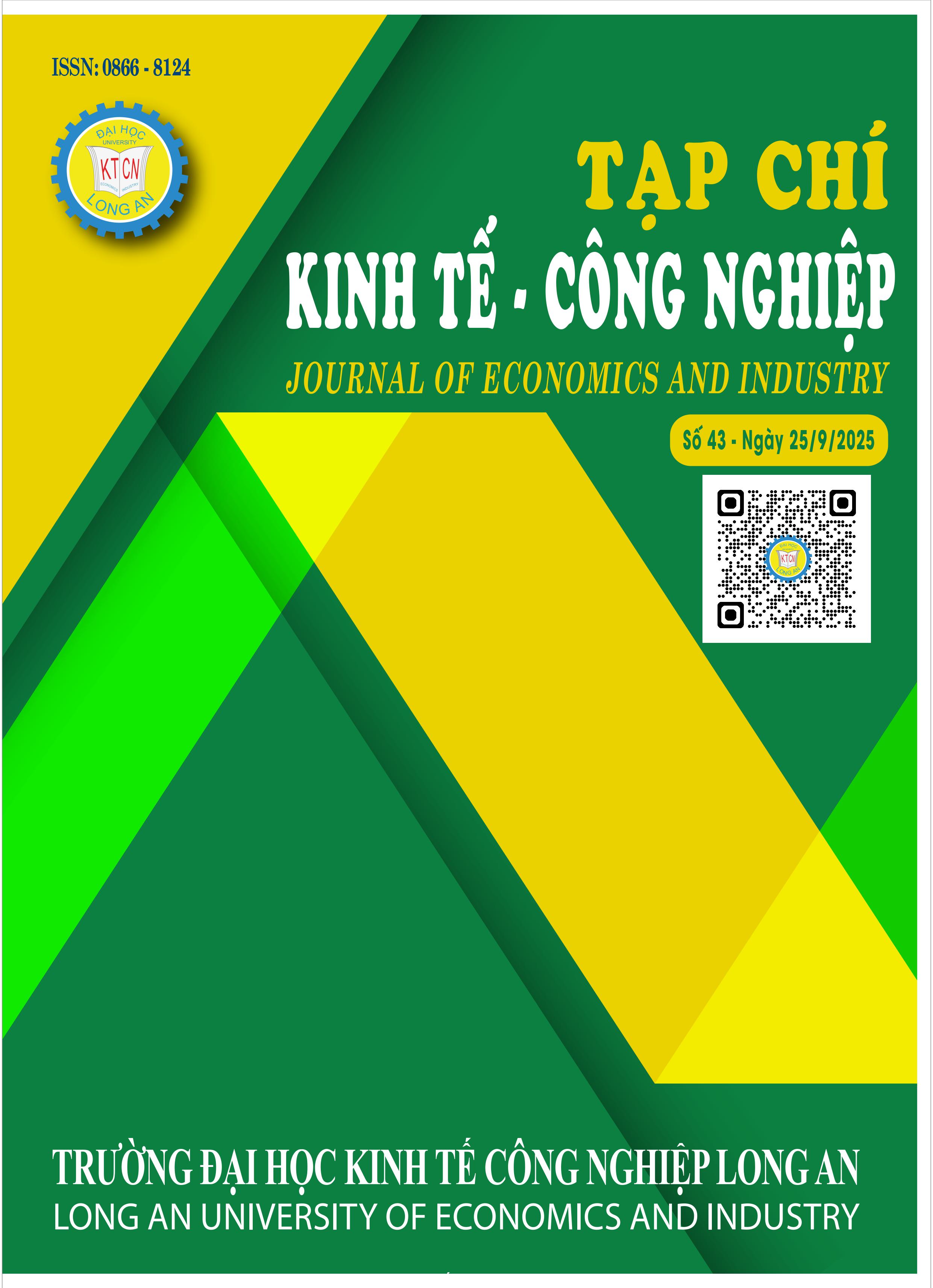Phát triển bền vững của SMEs Đồng bằng sông Cửu Long dưới khung Triple Bottom Line: Liên hệ mô hình tổ chức thuận hai tay và định hướng sáng nghiệp
DOI:
https://doi.org/10.63783/dla.2025.038Abstract
Doanh nghiệp nhỏ và vừa (SMEs) ở Đồng bằng sông Cửu Long (ĐBSCL) đóng vai trò trọng yếu trong phát triển kinh tế và xuất khẩu nông sản. Tuy nhiên, SMEs đang đối mặt với nhiều thách thức như thiếu vốn, di cư lao động và biến đổi khí hậu. Nghiên cứu này sử dụng khung Triple Bottom Line (TBL) để phân tích phát triển bền vững (PTBV) của SMEs theo ba trụ cột: kinh tế, xã hội và môi trường. Kết quả cho thấy SMEs đạt thành tựu đáng kể về kinh tế, nhưng yếu ở khía cạnh xã hội và môi trường. Hạn chế trong định hướng sáng nghiệp (EO) và khả năng điều phối nguồn lực (ROC) khiến tác động của mô hình tổ chức thuận hai tay (OA) đến PTBV chưa phát huy đầy đủ. Bài viết đề xuất các giải pháp: tăng cường đổi mới công nghệ, phát triển công nghiệp chế biến, tín dụng xanh, đào tạo lao động và khuyến khích mô hình tuần hoàn.
Downloads
References
Covin, J. G., & Wales, W. J. (2012). The measurement of entrepreneurial orientation. Entrepreneurship Theory and Practice, 36(4), 677–702. https://doi.org/10.1111/j.1540-6520.2010.00432.x
He, Z. L., & Wong, P. K. (2004). Exploration vs. exploitation: An empirical test of the ambidexterity hypothesis. Organization Science, 15(4), 481–494. https://doi.org/10.1287/orsc.1040.0078
Hitt, M. A., Ireland, R. D., Sirmon, D. G., & Trahms, C. A. (2011). Strategic entrepreneurship: Creating value for individuals, organizations, and society. Academy of Management Perspectives, 25(2), 57–75. https://doi.org/10.5465/AMP.2011.61020802
Jansen, J. J. P., Van Den Bosch, F. A. J., & Volberda, H. W. (2009). Managing potential and realized absorptive capacity: How do organizational antecedents matter? Academy of Management Journal, 52(6), 1181–1192. https://doi.org/10.5465/amj.2009.47084682
Lumpkin, G. T., & Dess, G. G. (1996). Clarifying the entrepreneurial orientation construct and linking it to performance. Academy of Management Review, 21(1), 135–172. https://doi.org/10.2307/258632
March, J. G. (1991). Exploration and exploitation in organizational learning. Organization Science, 2(1), 71–87. https://doi.org/10.1287/orsc.2.1.71
O’Reilly, C. A., & Tushman, M. L. (2013). Organizational ambidexterity: Past, present, and future. Academy of Management Perspectives, 27(4), 324–338. https://doi.org/10.5465/amp.2013.0025
Rauch, A., Wiklund, J., Lumpkin, G. T., & Frese, M. (2009). Entrepreneurial orientation and business performance: An assessment of past research and suggestions for the future. Entrepreneurship Theory and Practice, 33(3), 761–787. https://doi.org/10.1111/j.1540-6520.2009.00308.x
Sirmon, D. G., Hitt, M. A., & Ireland, R. D. (2007). Managing firm resources in dynamic environments to create value: Looking inside the black box. Academy of Management Review, 32(1), 273–292. https://doi.org/10.5465/amr.2007.23466005
Sirmon, D. G., Hitt, M. A., Ireland, R. D., & Gilbert, B. A. (2011). Resource orchestration to create competitive advantage: Breadth, depth, and life cycle effects. Journal of Management, 37(5), 1390–1412. https://doi.org/10.1177/0149206310385695
Wiklund, J., & Shepherd, D. (2005). Entrepreneurial orientation and small business performance: A configurational approach. Journal of Business Venturing, 20(1), 71–91. https://doi.org/10.1016/j.jbusvent.2004.01.001
Ed-Dafali, S., Habbash, M., & Salama, A. (2023). Sustainable entrepreneurship and SMEs’ performance in emerging economies: The mediating role of triple bottom line. Journal of Cleaner Production, 386, 135764. https://doi.org/10.1016/j.jclepro.2022.135764
Elkington, J. (1997). Cannibals with forks: The triple bottom line of 21st century business. Oxford: Capstone.
Hahn, T., Pinkse, J., Preuss, L., & Figge, L. (2015). Tensions in corporate sustainability: Towards an integrative framework. Journal of Business Ethics, 127(2), 297–316. https://doi.org/10.1007/s10551-014-2047-5
IPCC. (2022). Climate Change 2022: Impacts, adaptation, and vulnerability. Cambridge University Press.
Nguyễn, P. L., & Vũ, T. T. A. (2023). Báo cáo Kinh tế Thường niên Đồng bằng sông Cửu Long 2023: Các nút thắt thể chế, quản trị và liên kết vùng. Nhà xuất bản Đại học Cần Thơ.
VCCI & Fulbright. (2024). Báo cáo Kinh tế Thường niên Đồng bằng sông Cửu Long 2024: Huy động đầu tư cho phát triển bền vững. Nhà xuất bản Đại học Cần Thơ.
WCED. (1987). Our common future. Oxford University Press.

